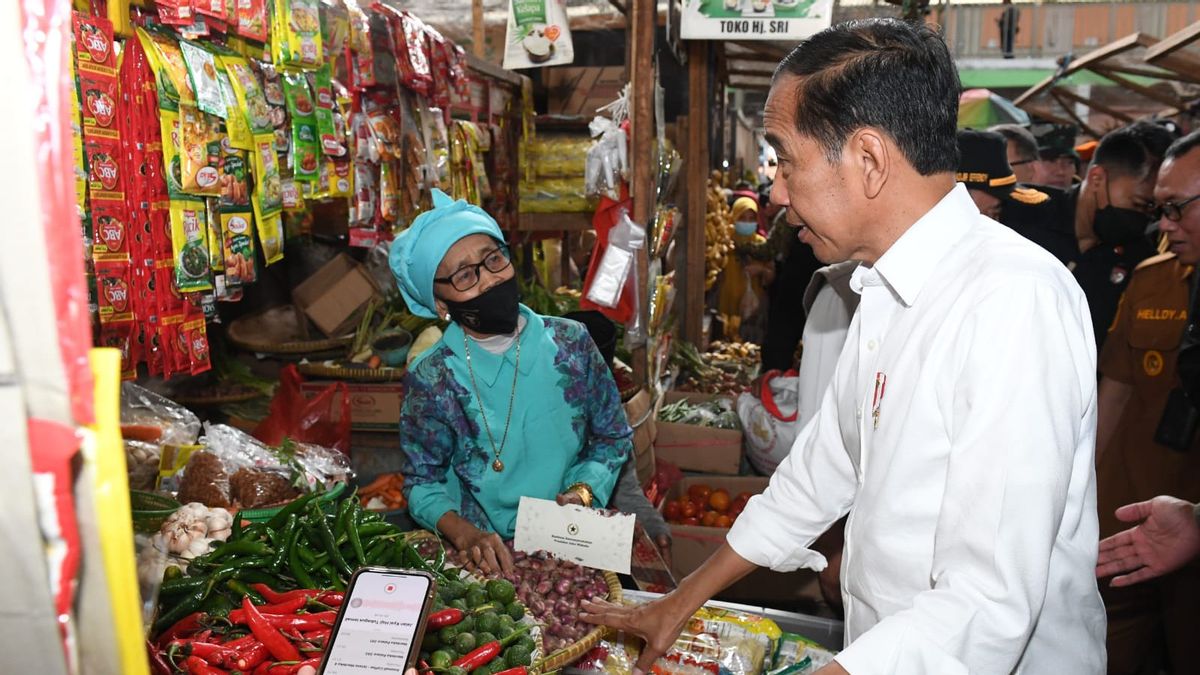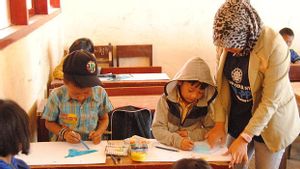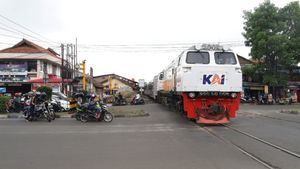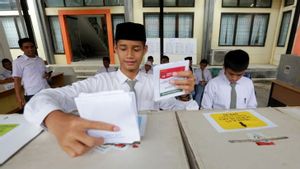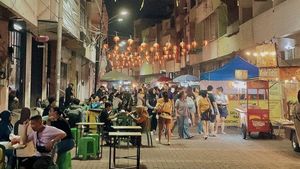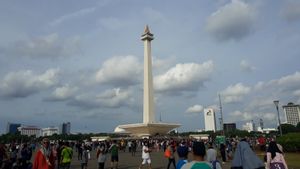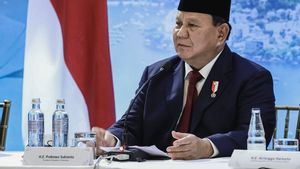JAKARTA - The phenomenon of increasing sea surface temperature, El Nino often makes it difficult for the whole world. India and Vietnam are even forced to stop rice exports abroad. The two countries focus their steps on getting around domestic food security.
Indonesia was also predicted to be affected by the impact. Indonesia's food security is questioned. Moreover, the peak of El Nino is predicted to be present in August-September. The power of attorneys did not remain silent. They hold many Cheap Markets. So that people are not surprised, he said. Is that enough?
El Nino's phenomenon of disrupting stability around the world is not a common secret. El Nino's narrative reduces productivity in the agricultural sector to food security to its cause. Many villages face El Nino which are exacerbated by climate change. India and Vietnam, for example.
Both are known as the largest rice-producing countries in the world, not playing games. Instead of choosing to export rice to make a profit, both of them actually stopped rice exports to various countries. This step was taken as a strategy to meet the availability of domestic rice to deal with weather anomalies.
Existing rice production is then focused on domestic supplies. India, which is known as the producer of 40 percent of the total rice in the world, is mainly. The country of Bollywood does not want to 'choke' export rice during El Nino. They understand very well that El Nino can be the source of crop failure and hunger.
"Because El Nino is disrupting food production in India. The government prohibits rice exports because it is to secure their food reserves first, considering that next year they will also have elections, yes. So, it is very, very important to maintain their domestic stability," said Agricultural Observer Center of Reform on Economic (CORE), Eliza Mardian as quoted by Tirto, July 23.
The attitude of India and Vietnam is considered reasonable by the Government of Indonesia. The owner of power considers the phenomenon of El Nino as a problem that cannot be taken lightly. The government confidently said that Indonesia would be able to overcome the phenomenon of El Nino.
The government assumes they have coordinated anticipation since February-April. One of the anticipatory steps was later realized by the activities of the Cheap Market. President Joko Widodo (Jokowi) even gave special instructions to his staff.
He wants the center to the regions to expand the Cheap Market. The strategy was perpetuated so that the Indonesian people would not be surprised when the El Nino phenomenon reached its peak.
"I have ordered SOEs, as well as governors, regents, and mayors. I ask them to increase the number of cheap markets in the regions, as much as possible."
"We hope that we can go ahead so that if El Nino comes later the public will not be surprised. This step was taken because the heat can interfere with health, the two foods can also be disrupted if it happens," said Jokowi as quoted by the Cabinet Secretariat, July 24.
It is possible that the government considers El Nino's anticipation and food security with the Cheap Market as an accurate solution. However, it tends to a short solution. This step can indeed help people who are very vulnerable and live in famine conditions.
However, this solution cannot be used as the main step to anticipate El Nino. This view is agreed by Environmental Observer Yani Sagaroa. He said the government should be more sensitive by making more planned efforts other than the Cheap Market.
The government asked him to make a planned mitigation effort long ago. The former National Council of Indonesian Environmental Wahana (WALHI) for the 2008-2012 era invited the government to immediately reshuffle the pattern and structure of agriculture which is increasingly uneven.
After that, Yani corrected food diversification (diversion) efforts as an important weapon to maintain the 'roh' of food security. He considered the recitation important. Even though what the government has recently done is actually busy uniforming food so that all regions in the archipelago consume rice.
In fact, Indonesia has historically known food diversity since time immemorial. Some use other foods as a source of nutrition -- sago, cassava, to sorghum as staple food.
Indonesia must have planned mitigation efforts. Systematically to deal with this kind of situation. Overhaul the pattern and structure of agricultural system development because in Indonesia it is not evenly distributed to areas whose ecosystems are very crucial.
It can also be with food distribution patterns on a cross-over and also food diversification. Not only rice but also nutrients from other foods. In addition, the government must also be active in handling malnutrition, stunting, and so on. This is an important lesson against El Nino. You can imagine that if the government only generalizes staple foods, then the challenges that exist will be even more difficult, "explained Yani when contacted by the author, July 26.
The mitigation effort is expected to be carried out by the government a maximum of six months earlier. The efforts to handle it must also be well planned and not carelessly. Everything so that Indonesia does not fall too low by El Nino. From the source of crop failure to disease outbreaks.
This mature planning allows the government to maintain food security. It does not seem rushed, carelessly, and moderately like the current efforts.
"Actually, the government is late. This issue should have been used as the focus of the government from the time it was vulnerable six months earlier. The government should have been preparing. But if it's prepared only recently, it's clear there's been some kind of delay.
The narrative makes the handling careless and it's just that there are actions. We have to understand that the quality of the action in managing a program related to the El Nino issue cannot be as simple as we imagined," concluded Yani, who now serves as Director of the Life Process Institute (LOH).
اقرأ أيضا:
The English, Chinese, Japanese, Arabic, and French versions are automatically generated by the AI. So there may still be inaccuracies in translating, please always see Indonesian as our main language. (system supported by DigitalSiber.id)
